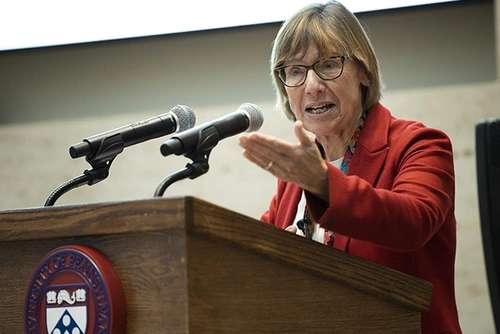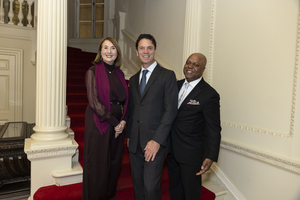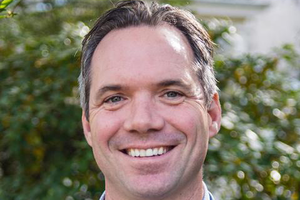Faculty Expert
As schools across the country work to recover from the disruptions of the pandemic, project-based learning — which was already increasing in popularity before so many educators were actively searching for new ways to engage their students after March 2020 — is having a moment.
But with the rise in popularity come some sensible questions: What evidence is there to support the efficacy of project-based learning? And what can we do to prepare teachers to implement it in their classrooms?
Those were just some of the topics covered by a panel discussion last week, hosted jointly by Penn GSE Dean Pam Grossman and Lucas Education Research. Their mission was to provide an overview of findings from Lucas Education Research studies into project-based learning, as well as a deep dive into the work Penn GSE has been doing around teacher practice and development.

“Our hope is we can create a robust, ongoing conversation about what it might look like to better support teachers in doing this work at a national scale,” said Grossman. “I would argue that earlier efforts to enact different versions of project-based learning have not taken root not because the approach isn’t successful but because we fail to invest sufficiently in supporting teachers to do this very complex work.”
Evidence for the Success of Project-Based Learning
The session opened with an overview of high-level findings from four project-based learning studies supported by Lucas Education Research. The findings were presented by Nathan Warner, the Director of Teaching and Learning at Lucas Education Research.
The studies, performed at the University of Southern California, Michigan State University, the University of Michigan, and Stanford University, provided teachers with project-based courses and professional development resources such as a summer institute and professional learning sessions. These sessions featured support in the form of instructional practices, practice with the course content, and assistance with adapting that content for their students.
The research found project-based learning was a remarkable success — accounting for noteworthy gains in AP test scores, proficiency test scores, and other measures of academic achievement. Briefs for each study can be found on the Lucas Education Research website.
“Taken together, these four studies show us that students in project-based learning classrooms outperform students who are not taught with a project-based approach,” said Warner. “We saw that students across various racial, ethnic, and socioeconomic backgrounds benefitted from being in high-quality project-based learning classrooms.”
Developing and Deploying the Framework
Following Warner’s presentation, Dean Grossman provided a look at the research behind the development of Penn GSE’s practice-based learning framework. As it exists today, the framework — developed through a mix of surveys, interviews, and classroom observations with 45 experienced practice-based learning educators — involves 10 practices organized into four domains defined as the primary goals of practice-based learning: to help students attain disciplinary knowledge and practices; to engage students in authentic work for authentic audiences; to support students in the iterative nature of complex work; and to provide students with the opportunity to learn to collaborate effectively and develop agency.
That framework, according to Grossman, is the basis for much of the work being done in Penn GSE’s teacher education programs and professional development research. To illustrate, faculty from around Penn GSE were given the opportunity to share their experiences:
● Zachary Herrmann, Co-Director of the Project-Based Learning Certificate Program, spoke about the design and implementation of the professional development program;
● Sarah Kavanagh, an assistant professor who shared her research team’s findings after studying the growth of the teachers undergoing the professional development program; and
● Christopher Pupik Dean, Penn GSE Senior Fellow and Director of the Urban Teaching Apprenticeship Program, who discussed how his program has been transformed by the project-based learning framework.
Teacher Preparation is Key
The session then broke into smaller individual rooms for discussions on practice-based learning implementation in K-12 and higher education environments, as well as teacher development programming and the research discussed earlier in the hour.
“If we think about how project-based learning is most likely to thrive and be accessible to a broad range of students across racial and socioeconomic divides, I think focusing early on the preparation of teachers is important, as well as supporting those teachers as they go through it,” said Grossman in her breakout session. “And this is informed really not so much by my role as a dean, but rather by my former life as a teacher and educator.”
Following the breakout sessions, guests heard from Lucas Education Research Executive Director Kristin De Vivo before wrapping for the day. Her closing sentiments echoed Grossman’s, focusing primarily on the importance of teacher preparation in the push to implement project-based learning more broadly.
“Only so much can be achieved to improve K-12 instruction if teachers are not well prepared to support project-based learning when they begin their careers,” said De Vivo. “We believe the core practices for practice-based learning provide an essential pathway on the roadmap toward shifting teacher preparation programs to best serve our students.”







